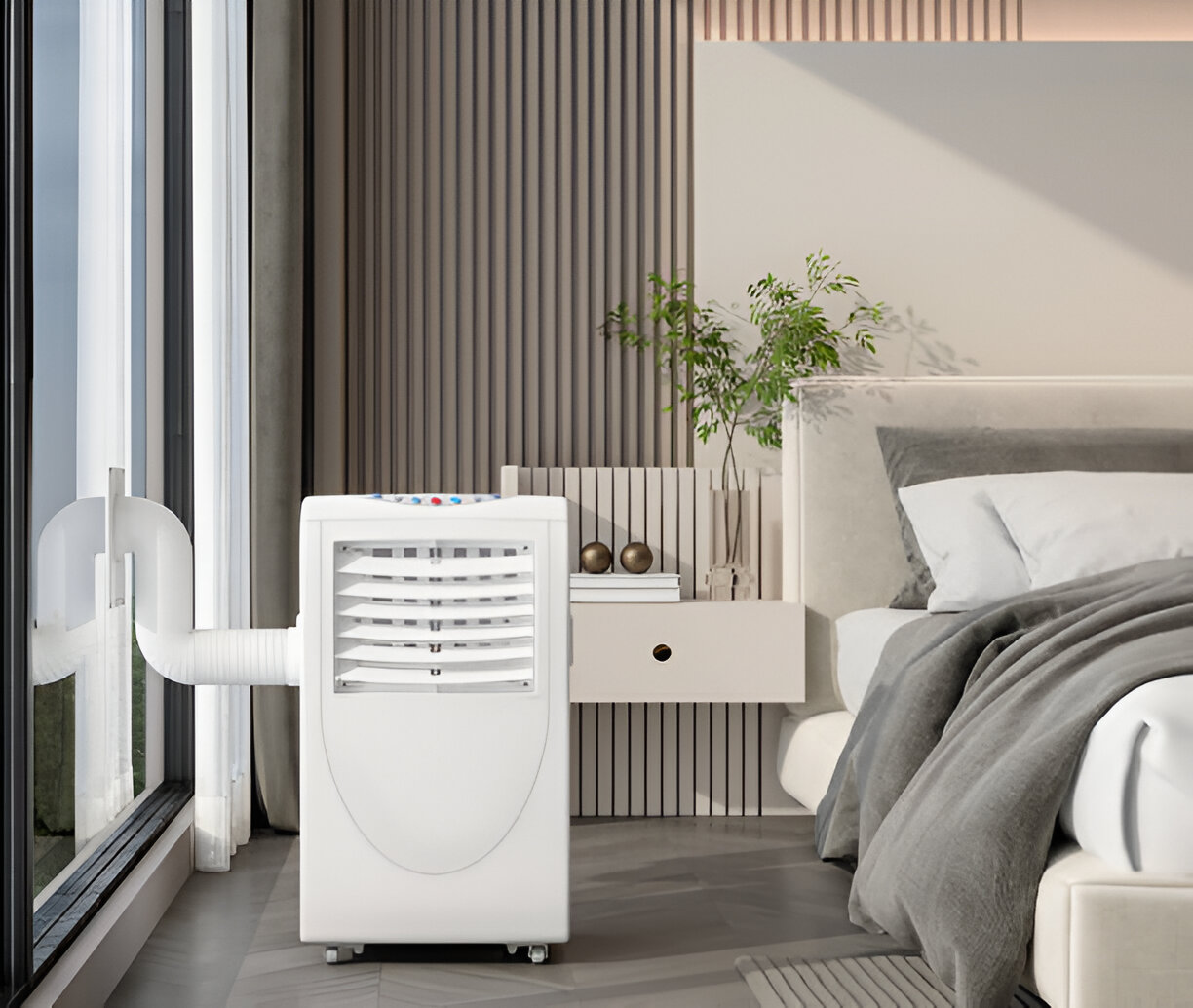

Whole-House Dehumidifier Installation in Wrightsville, PA
Controlling indoor humidity is a critical part of home comfort and long-term building health in Wrightsville, PA. Summers here are warm and humid, and homes near the Susquehanna River or with older, less airtight construction are especially prone to high indoor moisture, musty basements, condensation on windows, and mold growth. A properly sized and installed whole-house dehumidifier removes excess moisture from across the entire duct system, protecting finishes and belongings, improving comfort, and reducing the strain on your air conditioning system.
Why whole-house dehumidification matters in Wrightsville homes
- High relative humidity accelerates mold, mildew, and dust mite growth — common triggers for allergies and respiratory irritation.
- Basements and crawlspaces near the river or with seasonal groundwater can stay damp even when upper floors feel dry.
- Condensation on windows and interior walls leads to paint and finish damage and can rot wood trim and framing over time.
- Integrated dehumidification addresses these issues uniformly, unlike portable units that only treat one room.
Types of whole-home dehumidifiers and how they differ
- In-duct refrigerant dehumidifiers: Installed directly into or alongside the HVAC ductwork and remove moisture by cooling air over a refrigerant coil. Best for most Wrightsville single-family homes for efficiency and centralized control.
- Bypass or ducted dehumidifiers: Pull return air through a standalone cabinet and return dry air to the system. Useful when the air handler location or duct layout makes direct in-line installation difficult.
- Desiccant dehumidifiers: Use a moisture-absorbing material and are effective at lower temperatures; typically used in specialty or retrofit situations, such as unheated crawlspaces.
Proper sizing and placement for basements and entire homes
Correct sizing is essential. Dehumidifier capacity is measured in pints per day (pints/day). Key factors in selecting size:
- Square footage and ceiling height of conditioned space.
- Basement or crawlspace area and whether it is finished or unfinished.
- Local climate and typical summer humidity — Wrightsville’s proximity to the Susquehanna River increases moisture load.
- Home tightness and recent water intrusion history.
Typical guidance:
- Small to medium homes (tight, 1,200 to 2,000 sq ft): 30 to 50 pints/day may suffice if moisture load is low.
- Larger or high-moisture homes, basements, or homes with prior mold/water issues: 50 to 90+ pints/day.
Placement considerations: - Near the air handler or in the basement where return air is accessible for best whole-house circulation.
- Allow clearance for access and maintenance, and position so condensate can be drained to a nearby floor drain, sump, or condensate pump.
Integration with HVAC and drain considerations
- Integration options include control by a dedicated humidistat, integration with the home thermostat, or continuous operation tied to the HVAC fan. A humidistat set to a target relative humidity (RH) will control operation to maintain comfort without over-drying.
- Electrical needs vary by model; many whole-house units require a dedicated 120V or 240V circuit and professional wiring.
- Condensate management is critical: gravity drain to a floor drain is preferred. If the unit is located below the nearest drain, a condensate pump or tie-in to the home’s sump pump is required. Ensure routing meets local code and prevents backflow.
Typical installation steps
- Home assessment and humidity load calculation, including inspection of basements, crawlspaces, and duct layout.
- Selection of an appropriately sized unit and verification of electrical and drain requirements.
- Mechanical installation: mount in duct or alongside air handler, modify ductwork as needed, and connect supply and return.
- Electrical hookup by a licensed electrician to meet code and supply dedicated power.
- Condensate drain installation and testing for leaks and proper flow or pump operation.
- Control integration: install humidistat or connect to compatible thermostat controls and program target RH levels.
- System commissioning: verify airflow, measure moisture reduction, and balance the HVAC system for effective whole-house circulation.
- Client walkthrough covering operation, target settings, and maintenance basics.
Expected humidity targets and energy impacts
- Recommended summer RH: aim for 40 to 50 percent. In Wrightsville summers, targeting around 45 percent balances mold prevention and occupant comfort while avoiding overly dry air.
- Winter considerations: indoor RH will naturally drop; keep above 30 percent to prevent wood shrinkage and static electricity. Avoid running dehumidification in winter unless specific moisture issues persist in basements or crawlspaces.
- Energy impact: a whole-house dehumidifier increases electric usage but often reduces air conditioning runtime because dryer air requires less cooling to reach comfort conditions. High-efficiency models and proper sizing minimize operating costs. Compared to multiple portable units, a whole-house system is generally more energy-efficient and effective.
Maintenance requirements and long-term care
- Regularly clean or replace air filters per manufacturer recommendations, typically every 3 months or more often in dusty environments.
- Inspect and clean coils annually to maintain efficiency and prevent mold on cold surfaces.
- Flush condensate lines and check pumps for proper operation seasonally, and winterize drains if necessary.
- Have a qualified technician perform annual inspections that include electrical connections, refrigerant charge checks (if applicable), and control calibration.
- Monitor for signs of water intrusion, persistent odors, or rising RH readings which indicate additional building envelope or drainage issues.
Preventing mold and moisture damage in Wrightsville homes
- Maintain target RH below 50 percent in warm months to significantly reduce mold risk.
- Address exterior water management: maintain gutters, proper grading away from foundation, and functional sump pumps in river-adjacent properties.
- Consider pairing dehumidification with crawlspace encapsulation or basement waterproofing for persistent moisture problems.
- Ensure adequate ventilation in high-moisture rooms like bathrooms and laundry areas and use exhaust fans vented to the outside.
Whole-house dehumidifier installation is a long-term investment that protects your home, belongings, and indoor air quality while improving comfort year-round. For Wrightsville homes, where summer humidity and basement moisture can be persistent issues, professional assessment and proper installation deliver the most reliable results.


Enjoy flexible financing options that make upgrading or repairing your HVAC system easy and budget-friendly.









